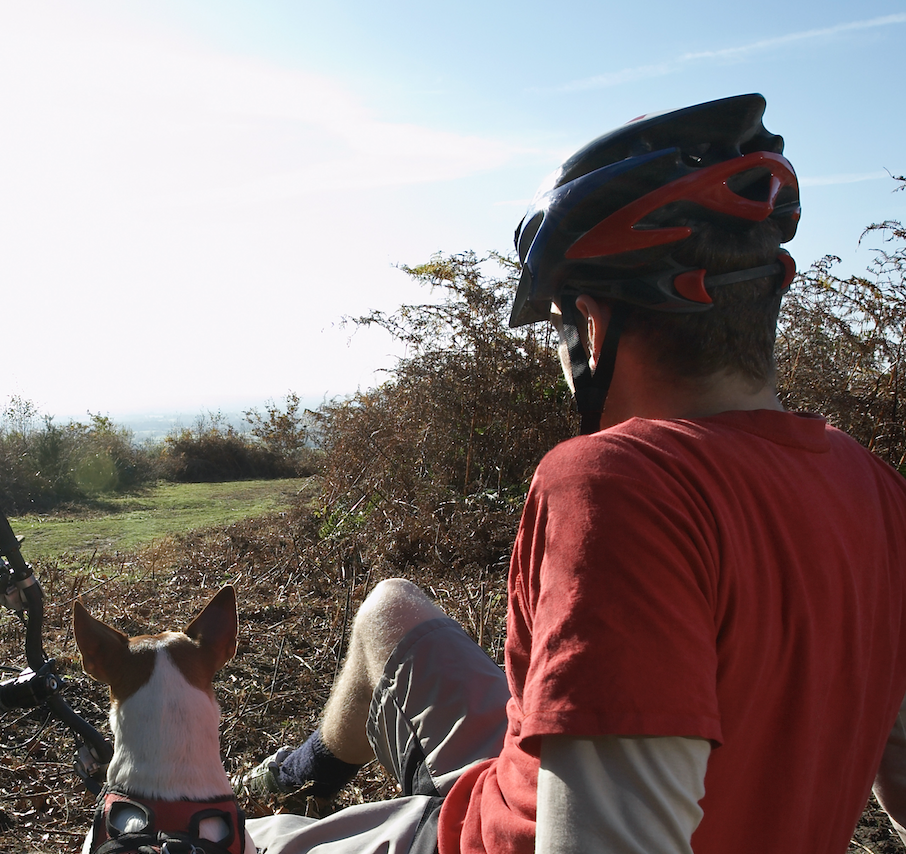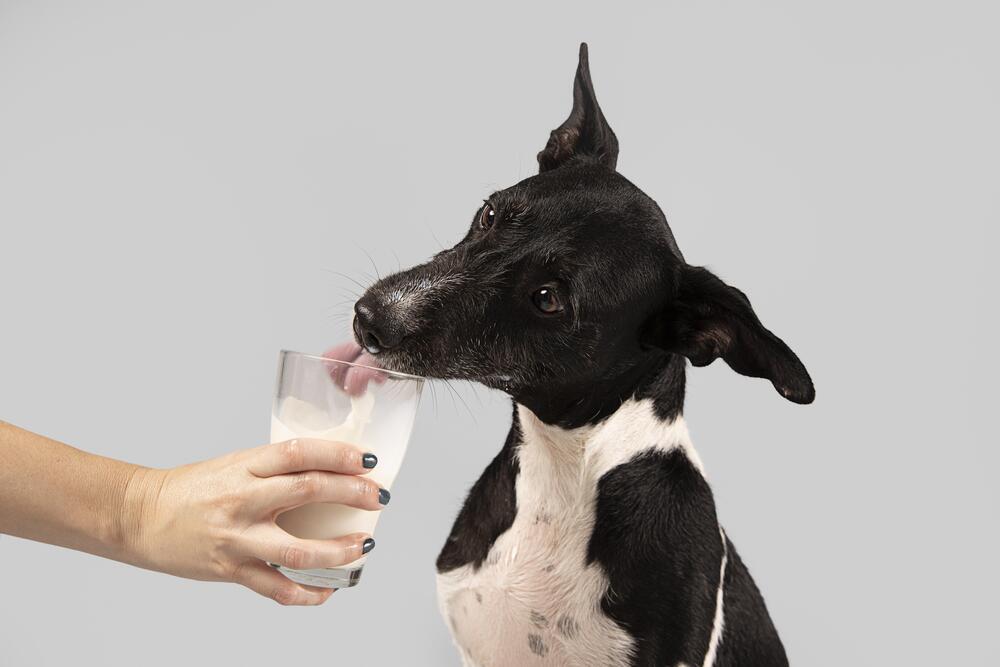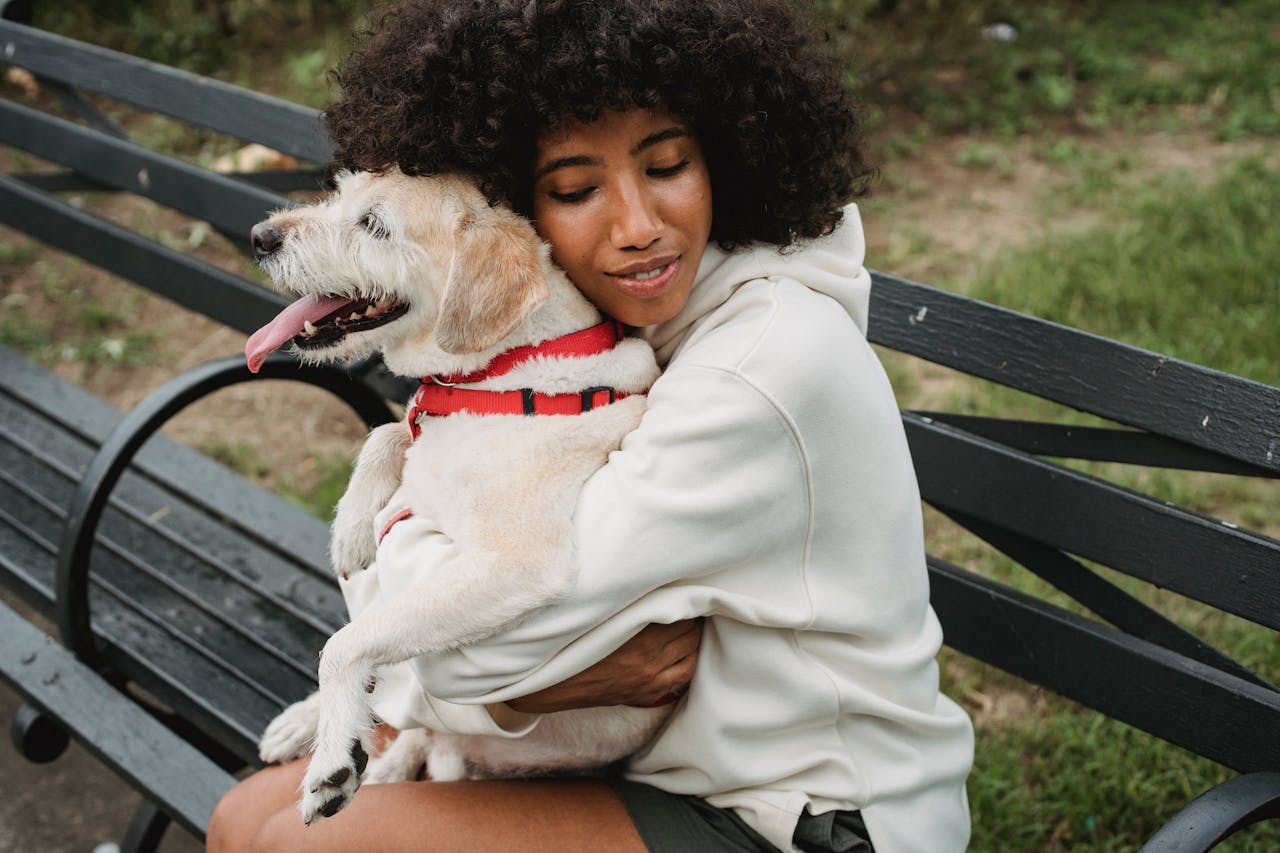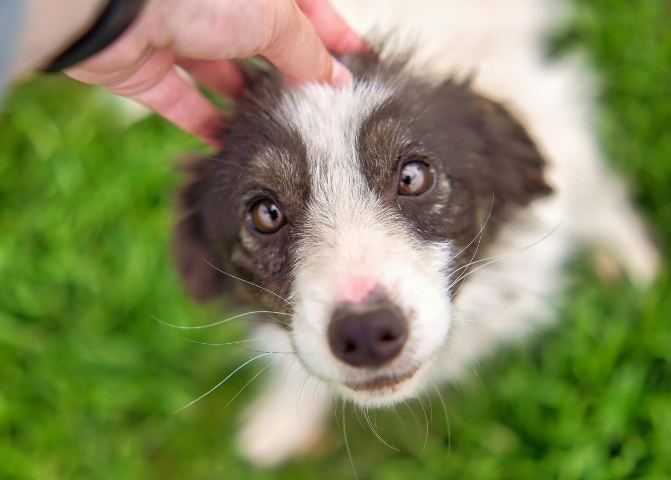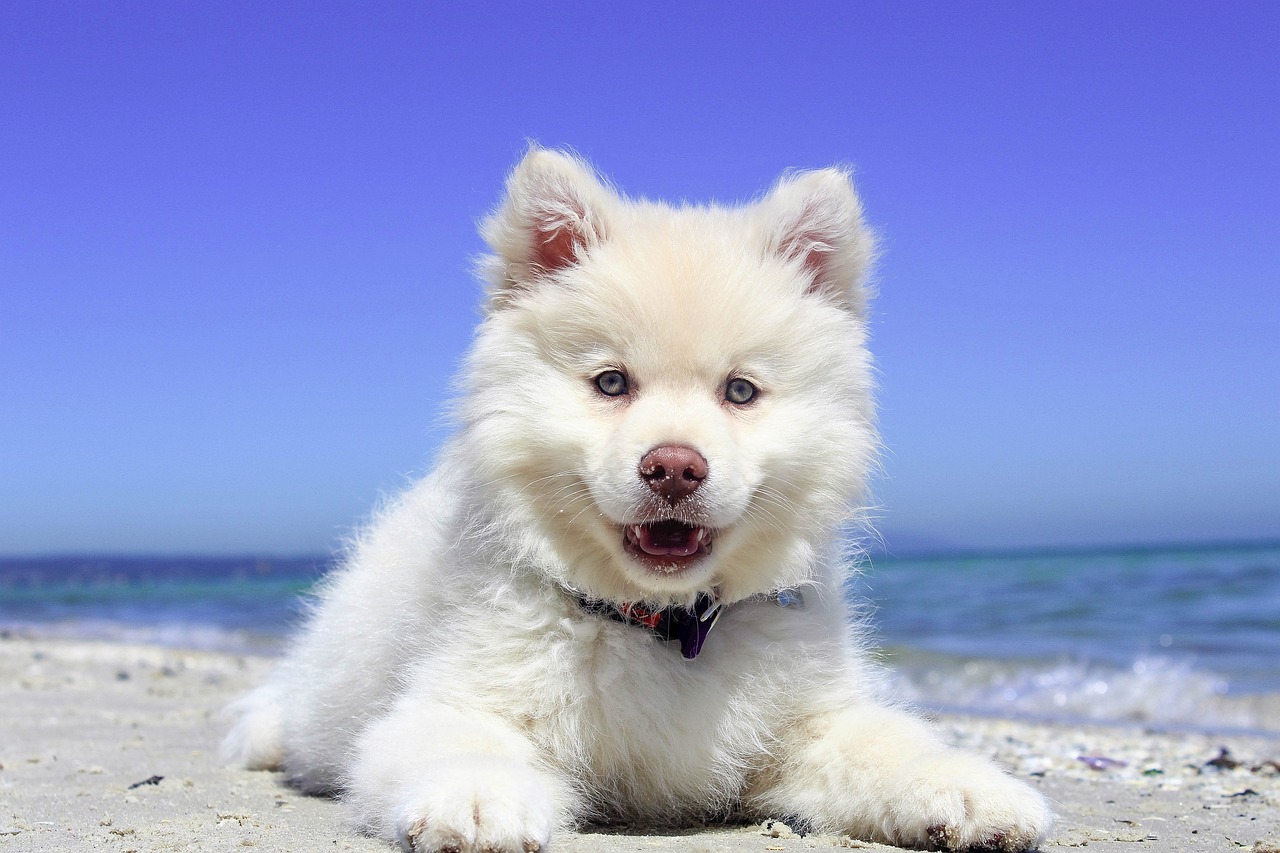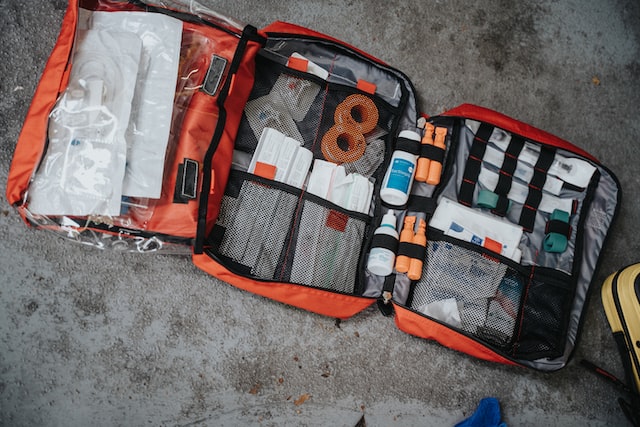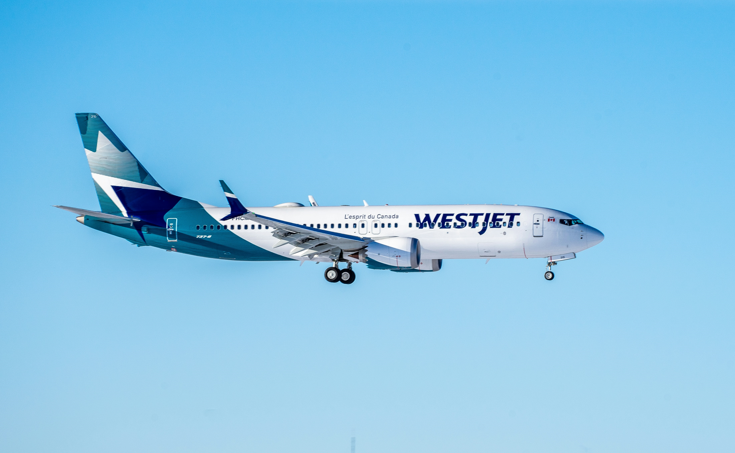
Are you ready for your next trip with your paw friend? Our pets—dogs, cats, and other animals—are family, so it is no surprise that more passengers are bringing them along!
As the title suggests, today we will discuss flying with pets, Emotional Support Animals, and Service Dogs on WestJet—Canada’s second-largest airline, operating flights to over 100 destinations.
Reviewing the airline’s requirements for traveling with animals in advance and ensuring compliance is the best way to have a smooth and stress-free flight with your furry friend!
Key Takeaways
Does WestJet Accept Emotional Support Animal (ESA)?
Effective August 5, 2021, WestJet no longer accepts emotional support dogs in passenger cabins for free. If a dog was previously booked as an emotional support dog but does not meet the service dog requirements, it can be transported as a pet, either in the cabin or in the cargo hold if too large.
Does WestJet Accept Service Dogs?
Yes, WestJet accepts service dogs in the passenger cabin at no additional cost. To be accommodated as a service dog, a canine must provide services to an individual with a disability.
Service dogs are required to have been trained to perform specific tasks / do work for the benefit of a qualified individual with a disability.
For domestic, international, and Caribbean flights, service dogs need to be specifically trained by an organization or individual who specializes in service dog training.
How to Get a Service Dog?
A service dog must be trained to perform specific tasks directly related to a disability. If you already own a dog, the team at ServiceDogTrainingSchool can assist you in training them to become the perfect service dog tailored to your needs!
How to Qualify for a Service Dog?
To qualify for a service dog, you must have a diagnosed disability, whether physical or mental, that significantly impacts a life activity. The service dog must be trained to perform specific tasks that directly mitigate the symptoms of the disability. This can include tasks, such as alerting to medical conditions, providing mobility assistance, offering support for mental health challenges, etc.
How to Get Started?
Get started by taking the simple SDTSI online training assessment to see if you qualify, and enroll in the course that best suits your needs.
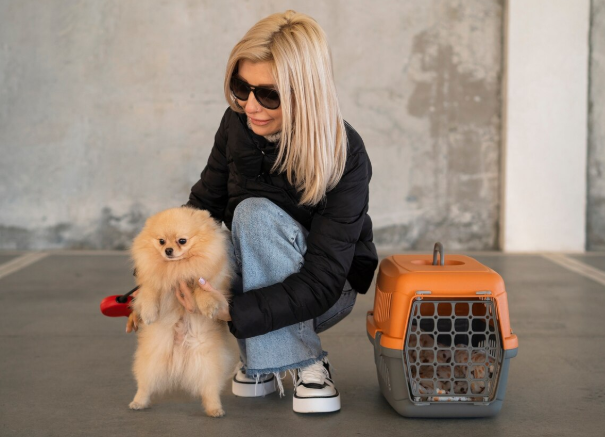
Flying with Pets/ESAs in the Cabin
Reservations and Fees
Reservations for pets can be made online or by phone. To include a pet in your travel plans, passengers are advised to chat with an airline agent or reach out by phone.
Passengers with pets will be charged a kennel fee which applies to pets flying in the cabin or as checked baggage. The airline considers an empty kennel or one containing a pet a personal item within the carry-on allowance.
For itineraries, where passengers traveling with the UltraBasic option are not allowed to have a carry-on bag, bringing an empty kennel or a pet in a kennel in addition to their personal item is permitted. UltraBasic is the airline’s lowest priced option which has been implemented as a ‘no-frills fare’. It allows passengers to add certain extras, i.e. booking a seat in advance or adding a checked bag.
Kennel fees can be paid via credit card through the contact centre or through Travel Bank funds.
The airline limits the number of pets allowed on each flight and strongly recommends that passengers reserve space for their pets immediately after booking. Requests made less than 48 hours before departure may not be accommodated.
The only way to guarantee space for your pet on the aircraft is by pre-booking. Without it, your pet might not be able to travel.
Pet Species Accepted in the Passenger Cabin
WestJet accepts the following species in the cabin: dogs, cats and birds. However, passengers flying with birds need to check the entrance requirements.
Kennel
Requirements for Cabin Travel
Pet kennels are considered personal items in the carry-on baggage allowance.
The maximum kennel dimensions permitted in the cabin (adjustable for different aircraft) are:
41 cm L x 21.5 cm H x 25.4 cm W (16 in. L x 8.5 in. H x 10 in. W).
Kennels must be: soft-sided, secure, leak-proof, airline-approved, and well-ventilated.
Duffle bags, gym bags, or any kennel permitting the animal's head to stick out are not allowed.
Pet Kennel Fees for Pets In the Cabin
The pet kennel fees are as follows:
1. Travel within or between Canada and the U.S.:
$50 - $59 CAD/USD;
2. Travel between Canada/U.S. and all destinations outside the U.S.:
$100 - $118 CAD/USD.
Maximum Number of Pets Allowed per Passenger / Kennel
Only one pet is permitted per passenger and per kennel.
Space Considerations
Pets must remain in the kennel at all times under the seat in front of you. Depending on the aircraft, passengers with pets may need to occupy a window seat.
Please keep in mind that if a passenger has a severe cat dander allergy, WestJet can make seating adjustments. You may be moved toward the rear of the aircraft, so that the airlines meets the Canadian Transportation Agency's buffer zone requirement for allergic guests.
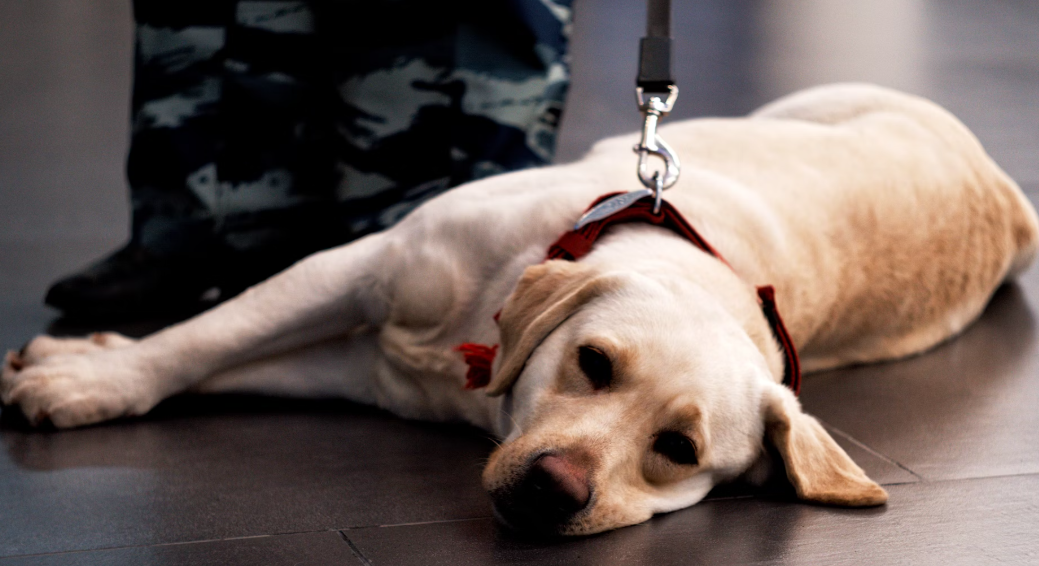
Working Dogs
It is important to clarify that WestJet does not consider working dogs service dogs. Working dogs are dogs trained to perform tasks, such as search and rescue, military or police work. However, these tasks are not related to personal assistance.
Working dogs are subject to cabin pet fees. If they need additional floor space, an extra seat must be purchased.
WestJet offers a program for working dogs, but it's important to note that many airlines do not offer similar services. The airline highly advises its passengers to confirm the policies of any partner airlines or other transport providers, as their rules may differ from theirs.
This program does not apply to WestJet Vacation packages. Furthermore, working dogs are not permitted in Business Class on 787 Dreamliner flights.
Documentation for Flying with Pets in the Cabin
At the airport, passengers will be asked to provide a Registered Certificate Identification card for their pets.
Control Measurements
Control measures are mandatory, especially for working dogs. They must:
-
Remain under your control at all times;
-
Wear a harness, vest, collar, and leash (tether), or be inside a kennel;
-
Exhibit behavior that demonstrates the dog is well-trained for public settings.
Working dogs that pose any health or safety risk to crew members or other passengers may be denied accommodation as working dogs and/or access to the aircraft cabin.
Requirements for Advance Notification
WestJet recommends passengers providing them with as much advance notice as possible, as working dogs are only accepted on space-available basis.
Travel Restrictions for Pets
Different rules apply when traveling with pets versus service dogs.
Before traveling with a pet across provinces, territories, or borders, passengers should review the entry requirements to ensure compliance with the relevant authorities, such as the consulate, embassy, or government agency.
The airline points out that it is the pet owner’s responsibility to meet these requirements, both at their departure point and destination.
Pets in poor health may be refused entry and be subject to a medical examination. Any associated costs will be covered by their owners.
Passengers traveling with pets, are advised to review general travel guidelines for pets, as these requirements can change and may differ based on factors like the destination, and pet breed, and whether the pet is a regular companion or a rescue animal.
Destination-based Restrictions
WestJet does not accept pets for travel to/from Barbados, Hawaii, Ireland (Dublin), Jamaica, or the United Kingdom.
Bird Embargoes
Birds of any kind are not permitted to be imported into the Dominican Republic.
Endangered birds and the remains of extinct bird species are prohibited from being exported from Mexico.
When traveling with a bird, an import/export permit may be necessary and should be arranged in advance.
Passengers are advised to contact the local embassy or consulate to verify the import/export regulations for pet birds. Additionally, there are extra import requirements that may need prior arrangements for passengers with pet birds returning to Canada or the US.

Acceptance Requirements
Pets are not allowed on flights that include code-share or interline partners.
To ensure pets’ comfort, the airline advises passengers to choose non-stop flights, as well as early morning or late evening flights during summer, and midday flights in winter.
Pets are not permitted to travel with an unaccompanied minor.
Pets under eight weeks of age will not be accepted.
Pets flying in the passenger cabin need to remain in their kennel and be kept under the seat in front of their owner at all times. Passengers who remove their pets from the kennel while on board, may be prohibited from traveling with their pets in the cabin on future WestJet flights.
Pets that behave aggressively, or are unruly, or distressed may be refused transport at WestJet's discretion.
All kennels must be approved by WestJet at check-in. Passengers are advised to refer to the kennel information for carry-on pets or the "Checked" and "On their own (as cargo)" sections for further details.
The airline points out that it is not responsible for the care or feeding of pets during transit.
The liability limits detailed on the baggage claim page also apply to pets. These amounts reflect the maximum compensation available, with each claim subject to proof of loss.
Consequential damages, e.g. loss of enjoyment or companionship, inconvenience, etc., are not eligible for compensation.
Pre-Flight Preparation
WestJet recommends feeding pets light meals and letting them drink water within 4 hours before check-in. To avoid spills during transit, passengers need to empty any food or water containers in the kennel before the flight.
It is also recommended that pets get exercise before heading to the airport, as some facilities require pets to remain kenneled at all times.
Passengers with pets have to arrive at the boarding gate no later than 40 minutes before departure. The airline specifies that arriving less than 10 minutes prior to the flight may lead to being denied boarding.
WestJet Vacations Package Notes
Passengers traveling with a WestJet Vacations package, should keep in mind that not all hotels accommodate pets. Contacting the hotel directly to confirm their pet policy and be prepared for potential additional fees is recommended.
Additionally, pets need to be added to the flight reservation by contacting WestJet in advance.
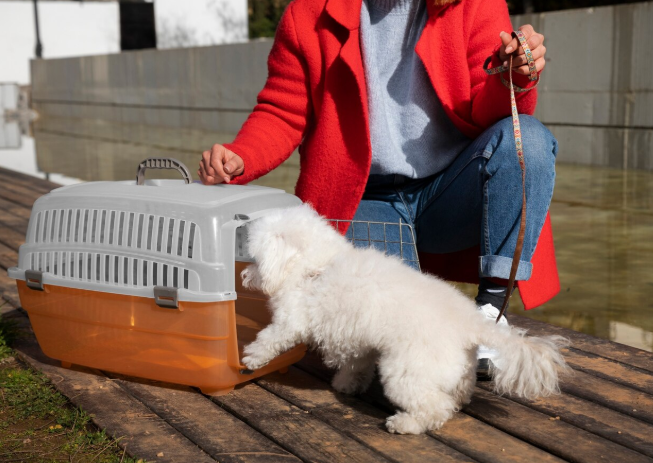
Flying with Pets as Checked Animals
Reservations and Fees
Passengers can book space for their pets online or over the phone. The airline recommends contacting a live agent or reaching out by phone. A kennel fee applies for pets traveling either in the cabin or as checked baggage. Whether the kennel is empty or occupied, it counts as a carry-on or personal item.
Kennel fees can be paid via the contact center using credit cards or Travel Bank funds. It’s strongly advised that pet owners reserve space for their pets as soon as they complete booking and no less than 48 hours before departure.
Please note that without pre-booking, you may not be allowed to travel with your pet since the number of pets allowed per flight is limited.
The airline is not responsible for pets being denied travel due to unreserved space.
The checked pet kennel fees are as follows:
1. Travel within/between Canada and the U.S:
$100 – $118 CAD/USD
2. Travel between Canada/U.S. and all countries outside the U.S.:
$200 - $236 CAD/USD
Checked Pet Kennel Requirements
Pets traveling as checked baggage must have a completed "Live Animals Handling Declaration," provided at check-in. Passengers need to be ready to provide details such as contact number, destination address and destination contact number.
Kennels must be:
-Sturdy, hard-sided construction in good condition;
-Large enough for the pet to stand, turn, and lie down comfortably;
-Leakproof bottom with absorbent lining;
-Equipped with secure, original fasteners and locking mechanisms;
-Ventilation without obstructions;
-Marked with "LIVE ANIMAL" and "THIS WAY UP" stickers (provided at check-in).
Also, it must have food and water containers attached to the door and an original manufacturer’s secure door lock(s).
Kennels that are soft-sided, collapsible, damaged, or made of wire mesh are not accepted.
You can find all the requirements that checked pet kennels have to meet on the airline’s website.
Checked Kennel Restrictions
The airline accepts the following animal species as checked pets:
-Dogs;
-Cats;
-Birds;
-Guinea pigs;
-Chinchillas;
-Hedgehogs;
-Rabbits.
Please note that not all pets are accepted in all countries. WestJet recommends checking the import requirements in advance.
Breed-specific Restrictions
The airline has updated its policy and no longer accepts the following brachycephalic breeds of dogs and cats in the cargo area for any reservations made after July 4, 2023:
Dogs:
Affenpinscher
Brasileiro
Brussels Griffon
Boston Terrier
Boxer
Bulldog – (all breeds)
Bullmastiff
Cane Corso
Cavalier King Charles Spaniel
Chihuahua (apple-headed)
Chow Chow
Dogue de Bordeaux
English Toy Spaniel
Japanese Chin
Lhasa Apso
Neapolitan Mastiff
Pekingese
Pug - all breeds including the Chinese Pug
Shar-Pei
Shih Tzu
Staffordshire Bull Terrier
Tibetan Spaniel
Cats:
British Shorthair
Burmese
Exotic Shorthair
Himalayan
Persian
Selkirk Rex
Scottish Fold
Additionally, the airline no longer accepts the so-called ‘strong breeds’ as checked pets. These are as follows:
American Bulldog
American Staffordshire Terrier
Anatolian Shepard
Bandog
Cane Corso
Caucasian Shepherd
Doberman
Dogo Argentino
Fila Brasileiro
Mastiff (all breeds)
Pitbull (all breeds)
Presa Canario
Rottweiler
Staffordshire Bull Terrier
Wolf Dog Hybrids
Bird Embargoes
WestJet prohibits bringing birds into the Dominican Republic, regardless of species. Similarly, exporting endangered or extinct bird remains from Mexico is banned at all times.
Passengers traveling with a bird, may need to secure import/export permits beforehand. It is essential that bird owners check with the embassy or consulate of in the destination country to understand their specific regulations.
Additionally, returning to Canada or the US with a pet bird involves extra import requirements, which also require prior arrangements.
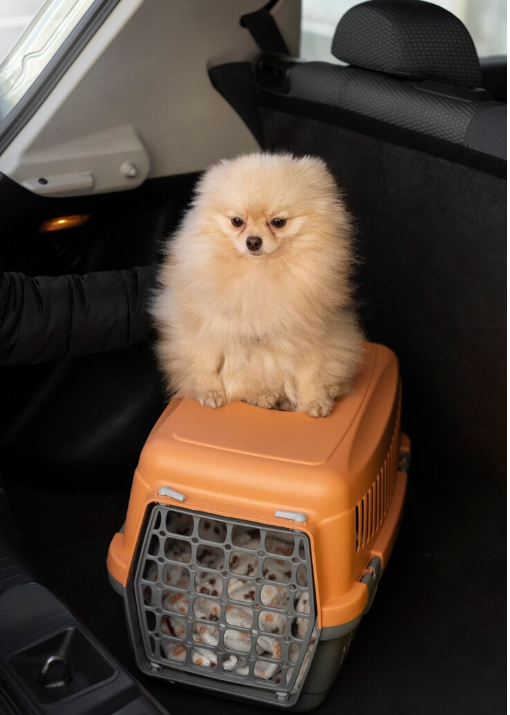
Acceptance of Animals as Checked Pets
Pets cannot travel on flights operated by code-share or interline partners, nor on WestJet flights booked through these partners.
To ensure their pets’ comfort, passengers are advised to choose direct flights and plan for early morning or late evening flights during summer or midday flights in winter.
Pets are not allowed to accompany unaccompanied minors.
Additionally, pets younger than eight weeks are not accepted.
Animals that display aggressive, unruly or distressed behavior may be denied boarding.
A maximum of two compatible animals of the same species, each weighing up to 14 kg (31 lbs.), may share a kennel. Pets over this weight must travel in separate kennels. All kennels are subject to approval at check-in.
WestJet does not provide care or feeding for pets in transit and assumes limited liability for pets.
Compensation for loss of companionship or inconvenience is not covered.
The following breeds are prohibited from travel into or through Ontario, Canada:
Pit Bull Terrier
American Pit Bull Terrier
American Staffordshire Terrier
Staffordshire Bull Terrier
Pre-Travel Preparation
WestJet recommends getting pets familiar with their kennels before departure, as this will help them associate it with a safe and comfortable space, which will reduce stress during travel.
Passengers are advised to feed their pets a light meal and give them a small amount of water within 4 hours before check-in. Food and water containers should be empty before check-in, as they can spill during transport.
Pets should be exercised before heading to the airport as some airports may require pets to stay in their kennel at all times.
Passengers might consider removing their pets’ leash after security screening and, although not required, also removing their collar or harness to ensure comfort.
WestJet recommends arriving 120 minutes before domestic departures and 150 minutes for international flights. Please keep in mind that if you check in less than 90 minutes before your flight, your pet may be denied boarding.
Arrival at the gate should be at least 40 minutes prior to departure. Passengers who arrive less than 10 minutes before their flights, won’t be allowed to board the plane.
After check-in, agents may not be able to take pets more than 60 minutes before international flights or 120 minutes before US flights.
Vacations Package Bookings
For passengers booking a WestJet Vacations package, the following pet-related guidelines apply, in addition to the previous information:
-Not all hotels accept pets. Passengers should contact the hotel directly to confirm their pet policy.
-Extra charges for pets may apply and must be paid directly to the hotel.
-Passengers who wish to travel with their pets, need to reach out to the airline in advance so that they can include their pets in the flight reservation.
Pets as Cargo
For pets traveling to London Heathrow (LHR), booking as manifested cargo is required.
For further details on shipping pets with WestJet Cargo, passengers need to contact the airline’s customer service team at [email protected] or call 1-866-WJCARGO (952-2746).
WestJet- Service Dog Policy
Does the Airline Accept Service Dogs?
Yes, the airline accepts service dogs if they meet their criteria. Service dogs must have undergone specialized training to perform tasks for the benefit of a person with a disability. The airline requires service dogs to be individually trained by an organization or person specializing in service dog training.
Making false or deceptive claims about having a disability, when an individual does not have such, could be classified as a federal offense. Such actions may also affect the person’s eligibility to book future flights with WestJet.
Do Service Dogs Fly For Free?
Yes, service animals that meet the airline’s requirements travel at no additional cost.
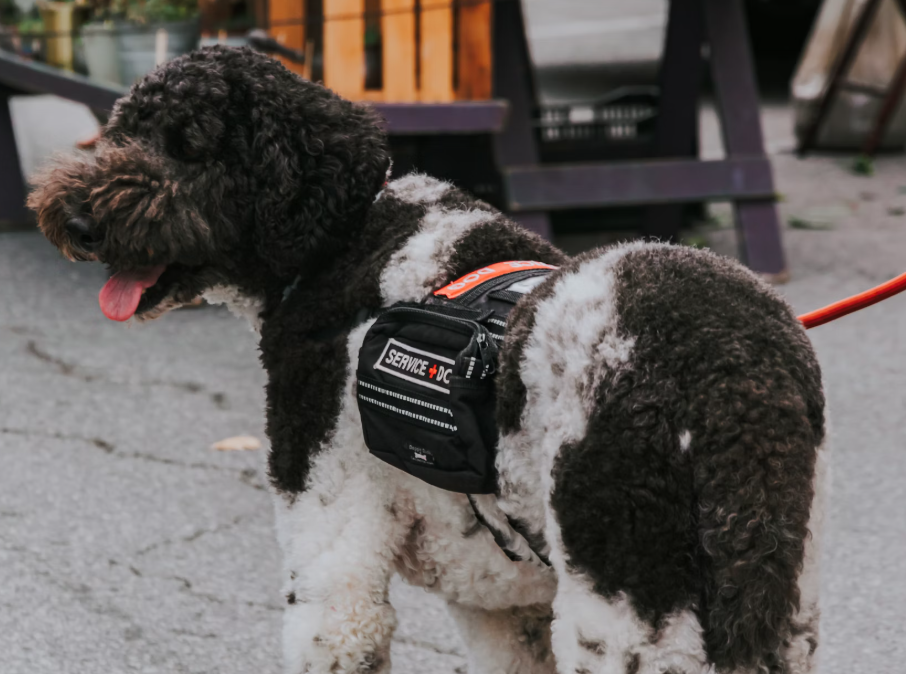
What Is The Maximum Number of Service Dogs Accepted Onboard?
The airline accepts one service dog for a person with a disability. If the trip includes a flight to or from the US, WestJet allows two service dogs for an individual with a disability.
Entrance and Import Regulations
Service dog handlers need to ensure their dogs comply with the entrance and import regulations, as well as any specific restrictions for all countries on their travel route, including layover destinations.
Failure to meet these requirements may result in the dog being:
-Denied travel or entry;
-Returned to the point of departure or origin country;
-Quarantined;
-Subject to other local restrictions.
Passengers are responsible for any associated fines, fees, or costs.
WestJet is not liable for incomplete or incorrect documentation. For detailed import/export regulations, vaccinations, and documentation, service dog handlers should contact the consulate or embassy of the countries of entry.
Destination-Specific Restrictions
Passengers traveling with service dogs are responsible for adhering to the restrictions set by local, regional, or national authorities.
The airline does not permit service dogs on flights to or from:
-Bridgetown, Barbados;
-Montego Bay and Kingston, Jamaica.
For the following destinations a pre-approval letter is required:
Antigua
Belize
Cayman Islands
France
Hawaii
Iceland
Ireland
Mexico
Spain
St. Lucia
Trinidad and Tobago
Turks and Caicos
United Kingdom
United States
We strongly recommend reviewing the information on the WestJet website regarding obtaining a pre-approval letter.
Advance Notice
Passengers are recommended to notify the airline about traveling with a service dog at least 48 hours before their flight. This will help WestJet secure suitable seating and minimize the risk of delays or denied travel.
Failure to provide advance notice may result in delays until the next available WestJet flight to the destination.
For WestJet Vacations bookings, a minimum of seven days' notice is required.
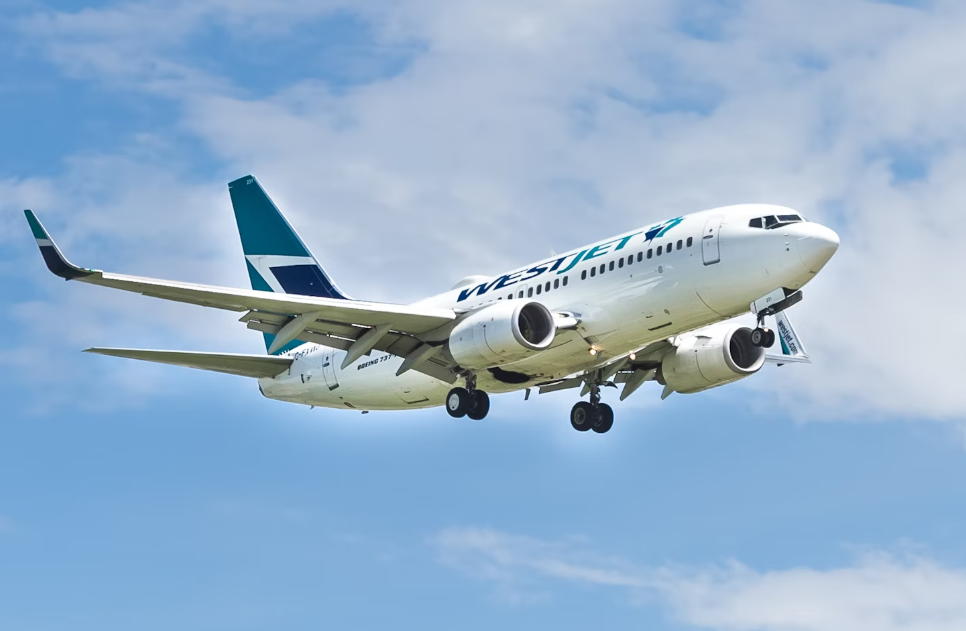
Reserving Travel
To request travel with a service dog or add a service dog to a reservation, passengers need to contact the Special Care Desk at least 48 hours prior to departure and have their reservation code ready.
Please keep in mind that you will be asked to confirm that your service dog is traveling to assist with a disability, as well as the tasks/ services the dog has been trained to perform.
Specific details about the disability will not be required.
Seating Requirements
Service dogs are not allowed in the emergency exit row or in an empty seat.
Please note that if your service dog does not fit comfortably in your foot space, additional space may be requested by contacting the airline at least 48 hours before departure.
Additional space is provided free of charge on flights within Canada. For international flights, you may need to purchase a second seat to accommodate your service dog.
Information about the dog’s weight, height, length, width and breed may also be required so that the airline can determine the space needed for accommodation.
Requests should be made within 48 hours to enable the airline to meet them.
Passengers flying with service dogs that exceed the size and weight limits for cabin travel may be offered rebooking to a later flight, or their dogs may need to travel in the aircraft hold. Transporting a service dog in the hold is free, provided the passenger provides a carrier
Control Measures for Service Dogs and Required Behavior
WestJet considers all service dogs to be on duty from the time they are at the gate until they are onboard the aircraft.
Service dogs must:
-Be under your control at all times;
-Wear a vest, harness, collar, and leash (tether), or be inside a carrier. Regardless of the type of control measure, it needs to clearly indicate the dog is a service dog (e.g., a label on a kennel or embroidery on the leash, vest, or harness);
-Behave appropriately, demonstrating they are trained for public environments.
The airline does not transport service dogs if the requirements listed above are not met or if the dog displays unwanted behaviors, such as:
-Running freely;
-Barking / growling at other individuals;
-Biting;
-Jumping on people;
-Relieving themselves (urinating or defecating) in the cabin or gate areas;
-Causing disruptions at the gate area or in the cabin.
Service Dog Identification Requirements
Service dog handlers are encouraged to bring their Registered Identification Card or other written documentation as this can be requested by airport authorities or other service providers.
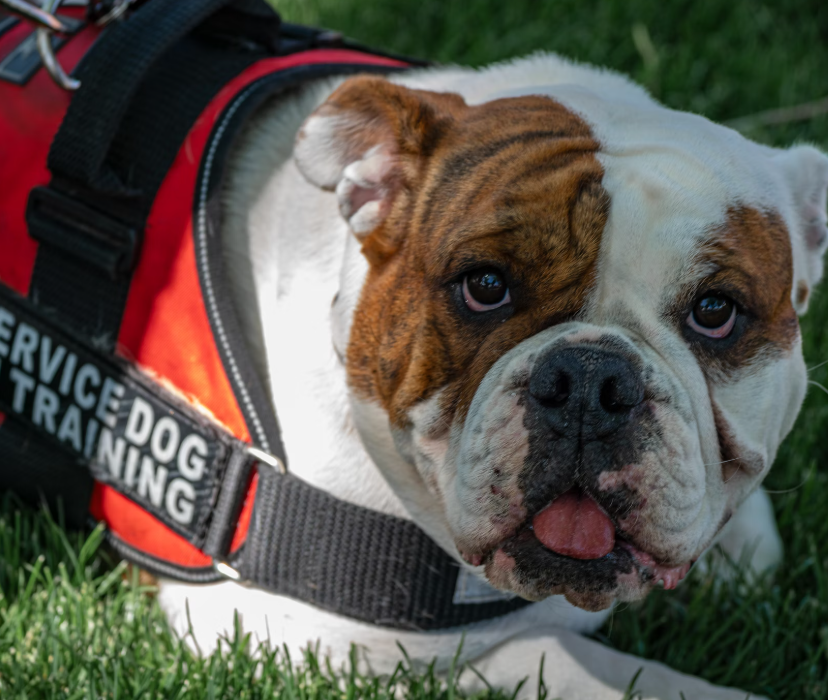
Are Service Dogs in Training Allowed to Travel on WestJet?
Yes, the airline allows one service dog in training per trainer or handler to travel free of charge on flights operated by WestJet or WestJet Encore. The booking has to be made with WestJet.
However, since Canadian laws do not require this accommodation and the dog is not actively assisting an individual with a disability, they will be categorized as a "pet" on the reservation.
The acceptance of service dogs in training depends on available cabin space and follow the standard pet-in-cabin policies. Additionally, these dogs are not allowed to travel with unaccompanied minors.
This service is not commonly offered by other transportation providers, so handlers of service dogs in training need to check the policies of any other carriers they plan to use during their trip.
We strongly advise to check the full information regarding service dogs in training on the WestJet website.
Why Train Your Dog With Service Dog Training School International?
Our training courses are designed to be flexible and easy to follow, with well-structured lessons that break down comprehensive information into simple, engaging steps. The programs are self-paced, allowing you to tailor them to your needs.
Our team provides ongoing support throughout the process, as well as after the completion of a training program, offering feedback, guidance, and answers to your questions or concerns.
A training certificate serves as proof that your dog has completed a training program and is a legitimate service animal.
Details of all dogs who complete our program are available for verification on our website.
Service dog regulations vary on a local level and we recommend reviewing these in advance.
If you reside in Canada, you may want to read our article “Service Dog Laws in Canada” or visit the website of the Assistance Dogs International (ADI) regarding service dog laws in Canada.
What Do Our Service Dog Training Programs Include?
Service dog training goes beyond teaching specific tasks. While performing specialized work to assist a person with a disability is what differentiates service dogs from companion animals and pets, the training process also includes two other essential components: obedience training and public manners.
Basic and Advanced Obedience
Your dog must first be trained in fundamental and advanced obedience skills, such as "sit," "wait," "heel," walking calmly on a leash, and maintaining focus. It's essential to ensure your paw friend has mastered these commands before progressing to more complex service dog tasks tailored to your needs.
Transition to task-specific training should be made only when your dog is fully prepared.
Specialized Service Dog Tasks
Specific service dog tasks can greatly vary based on the person’s needs.
These tasks might include:
Recognizing and alerting to medical episodes (e.g., changes in heart rate, blood sugar levels, seizures);
Some tasks may come more naturally to your paw friend than others, especially if you have a strong emotional bond.
Psychiatric service dog training is often less physically demanding than other types of service dog training, and can be completed more quickly. However, it still requires patience, consistent approach and adapting the training to the dog’s response.
Public Manners
Teaching your service dog to behave properly in public and remain focused on you regardless of the distractions is a critical part of their training.
A well-trained service dog should stay calm and attentive regardless of the surrounding stimuli. To achieve this, you should gradually introduce your dog to different environments and distractions, starting with low-intensity situations and increasing difficulty over time.
Positive reinforcement—rewarding your dog for exhibiting desired behaviors—is key to successful training. The more a behavior is rewarded, the more likely it will be repeated in the future.
With that being said, our programs are entirely based on positive reinforcement and human methods as we believe dogs are part of the family and should be treated with respect!
Additionally, early and thorough socialization is essential if you want your future service dog to be dependable, well-behaved, and confident in various settings. Never underestimate the importance of this foundational step!
FAQ
Am I allowed to travel with Guinea pigs, Chinchillas, Hedgehogs or Rabbits in the passenger cabin?
No, the airline accepts only dogs, cats and birds in the cabin but you still travel with those species as checked pets.
Does WestJet accept service dogs in training?
Yes, the airline accepts service dogs in training. However, their acceptance depends on available cabin space and follows the standard pet-in-cabin policies.
How many service dogs does WestJet accept per person?
The airline accepts one service dog per person, unless on flights to/from the US, where the maximum number of service dogs per individual is 2.



